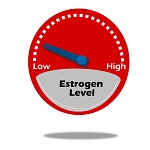Aging is a natural part of the human experience. As people get older, their bodies naturally go through changes that are normal for their age. However, some people start to show signs of premature aging at a much younger age than what is considered “normal.”
This can be caused by different factors, such as hormonal fluctuations or stress levels. In this article, we will discuss how hormones play a role in premature aging and offer advice on how you can avoid it!
What Is Premature Aging?
Premature aging occurs when people experience changes in their skin, hair or body that are much more rapid than the normal progression of time. This can happen at any age and is distinguished by wrinkles and other signs of aging appearing earlier than they should.
What Causes Premature Aging?
Hormones are the primary cause of premature aging. When hormones fluctuate, they can trigger many different changes in a person’s body, leading to signs of premature aging appearing sooner than expected.

Testosterone is known as “the male hormone” because men primarily produce it, but just as women have some estrogen, women have some testosterone as well. When a woman’s estrogen level changes (e.g., during puberty), so does her testosterone level, and the same happens when she goes through menopause.
Men experience hormonal fluctuations throughout life, which can cause either early hair loss or increased growth of facial hair. These same fluctuations may make wrinkles appear later for other people who do not usually develop them.
Other Causes of Premature Aging
- Hereditary Factors: Some people are more prone to premature aging than others. This is because some people have a genetic predisposition towards early wrinkling.
- Environmental Stressors: Environmental stressors include sun damage, smoking, pollution and poor diet/nutrition, which can cause wrinkles and other skin conditions earlier in life.
- Diet and Nutrition: Poor eating habits can contribute to visible signs of premature aging. For example, an unhealthy high-fat or low-protein diet has been proven to take years off the lives of mice!
How to Prevent It
It is never too late to make changes in your lifestyle that will help you reduce the signs of pre-mature aging. Some steps you can take include the following:
One of the most important things you should do every day for your skin’s health and longevity is to apply sunscreen all over your body. Sunlight exposure may not seem harmful because it also provides vitamin D, but prolonged sun exposure causes damage which results in wrinkles and cancerous lesions (such as those caused by smoking). To protect yourself and delay the signs of aging, apply a moisturizer with SPF protection each morning before going out into public or spending time outdoors.
Another step you can take to prevent the early development of wrinkles and other signs of premature aging is eating a healthy, low-fat or no-fat, high-protein diet. This will make your skin look healthier and more youthful than when it is clogged up with grease from fatty foods! Also, be sure to check ingredient lists for anything unhealthy choices (such as preservatives) before deciding what kind of items you should buy on each shopping trip.
How to Treat Premature Aging
If you are already noticing signs of premature aging, such as wrinkles, a dermatologist may recommend using collagen supplements (such as those made from marine life) and other natural remedies that stimulate the body to produce more collagen. Dermatologists may also prescribe creams that contain retinol or AHAs if they feel it is necessary.





